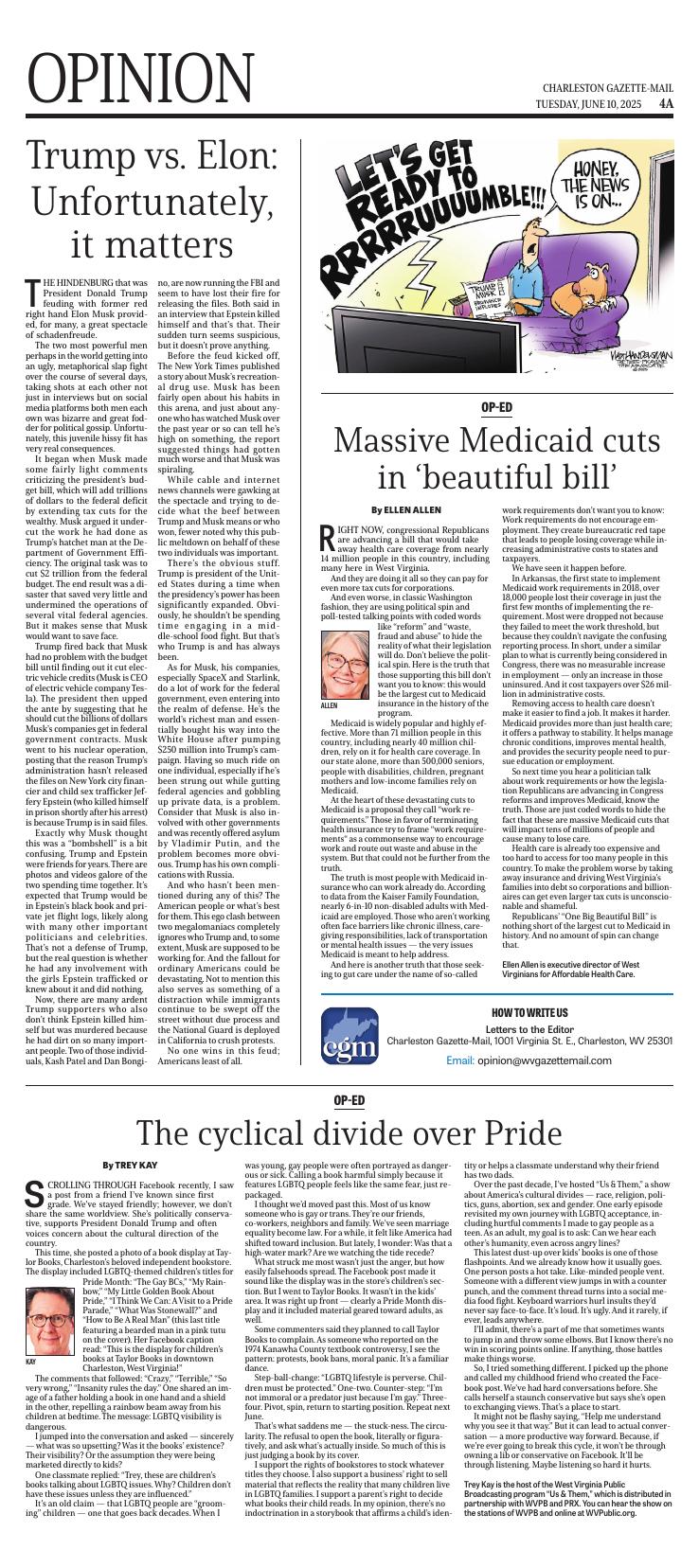Eric Engle: Government workers, unions in jeopardy (¬“¬◊ƒ⁄…‰)
President Donald Trump's administration is busy working to dismantle the federal civil service in three very important and often overlooked ways:
- Stripping two-thirds of the federal civilian workforce of collective bargaining rights. This is happening under a “mass exclusion” executive order that completely abuses and exceeds the authority granted the president to exclude certain national security positions under the Federal Service Labor-Management Relations Statute set forth in Title VII of the Civil Service Reform Act of 1978. The National Treasury Employees Union, American Federation of Government Employees, which is the nation’s largest federal employee union, and others are challenging this, and litigation is playing out, but right now, this union-busting executive order still stands, which clearly violates the statute.
- Kneecapping administrative bodies like the Merit Systems Protection Board; Federal Labor Relations Authority; National Labor Relations Board; Office of Special Counsel; Equal Employment Opportunity Commission and more. The end result is these bodies cannot perform their statutory functions handling disputes and complaints and issuing binding decisions outside the federal court system. The U.S. Supreme Court has let the regime get away with a certain amount of this by allowing Trump to fire members of some of these bodies appointed before his second term, without cause, before their terms were up. Others of these bodies have vacancies preventing quorums needed to issue rulings.
- Acting to try and strip much of the federal workforce of their civil service protections by attempting to reclassify them as at-will employees under an Office of Personnel Management proposed rule called Schedule P/C (formerly Schedule F). I submitted a lengthy comment, as have thousands of other NTEU members and their families and friends, opposing this nonsense.
As far back as 1883, with the passage of the Pendleton Act, this country showed that it started to recognize the importance of a merit-based civil service free from political patronage and partisan sycophancy. The 1978 Civil Service Reform Act was key to securing that as an ongoing reality. President John F. Kennedy first granted federal employees collective bargaining rights by executive order in 1962, and President Richard Nixon later expanded those rights via another executive order.
No president since JFK and Nixon saw fit to exclude such a vast swath of the federal civilian workforce from collective bargaining rights for any reason, including national security, even at the height of the Vietnam War or following 9/11. We must all come together to defend a merit-based federal workforce secured with civil service protections and union rights. And, yes, that means a diverse, equitable, inclusive and accommodating federal workforce. That helps ensure merit; it does not threaten it.
The U.S. government is the largest employer in the country (at least for now, although this administration is actively working to change that in totally arbitrary and capricious ways). These anti-worker schemes won’t stop with the federal workforce. Working-class solidarity has never been more important across our entire economy and society than it is now.
Eric Engle, of Parkersburg, is chief steward for National Treasury Employees Union Chapter 190.






























